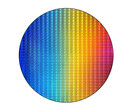Former Apple Mac chief Jean-Louis Gassée has published a blog post putting forward the case for why it is almost imperative for PC makers to switch to ARM architecture moving forward. Based on the performance of the current Apple A12Z-based Mac mini DTK, Apple will make performance and battery life gains that Intel won’t be able to match, says Gassée. Although Microsoft is already positioned to make the switch should eventuate with its Windows on ARM project, he is of the view that Microsoft will need to put in a lot more work than is currently the case.
This leaves Microsoft with a choice: Either forget Windows on ARM and cede modern PCs to Apple, or forge ahead, fix app compatibility problems and offer an ARM-based alternative to Apple’s new Macs. It’s a false dilemma, of course. Microsoft will forge ahead…with repercussions for the rest of the Windows PC industry.
Specifically, what are Dell, HP, Asus, and others going to do if Apple offers materially better laptops and desktops and Microsoft continues to improve Windows on ARM Surface devices? In order to compete, PC manufacturers will have to follow suit, they’ll “go ARM” because, all defensive rhetoric aside, Apple and Microsoft will have made the x86 architecture feel like what it actually is: old.
We’ve seen first-hand the benefits of PCs running on ARM-based architecture ourselves in the form of the Snapdragon 8xc-powered Samsung Galaxy Book S. It offers solid performance for an ultrabook, comparable with Intel’s low voltage chips, while offering over 20 hours battery life and integrated LTE connectivity. Samsung’s own Intel Lakefield-based Galaxy Book S variant offers hit-and-miss performance and substantially less battery run time helping to support the case that ARM-based machines with better software support than is currently the case could be the way to go.
Gassée goes on to argue that even Intel might be forced to start making ARM-based chips again. Intel made the fateful decision to dump its ARM-based Xscale business in favor of its ultimately failed x86 Atom-based chips back in 2006, the year before the iPhone was launched. The iPhone initially ran a Samsung-made off-the-shelf ARM-based design with Tony Fadell later threatening to leave Apple if Steve Jobs didn’t also put ARM chips into its iPads instead of Intel’s Atom. This, of course, set the trajectory for Apple to develop its own ARM-based chips in-house for the iPhone and iPad leading to its Mac ARM transition.


















